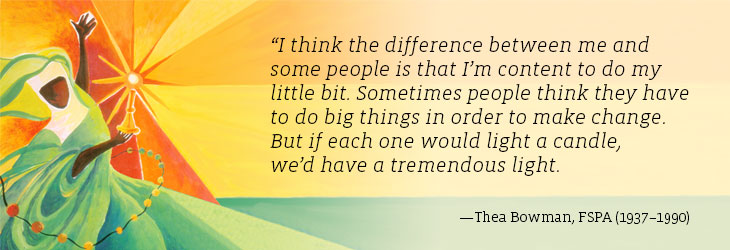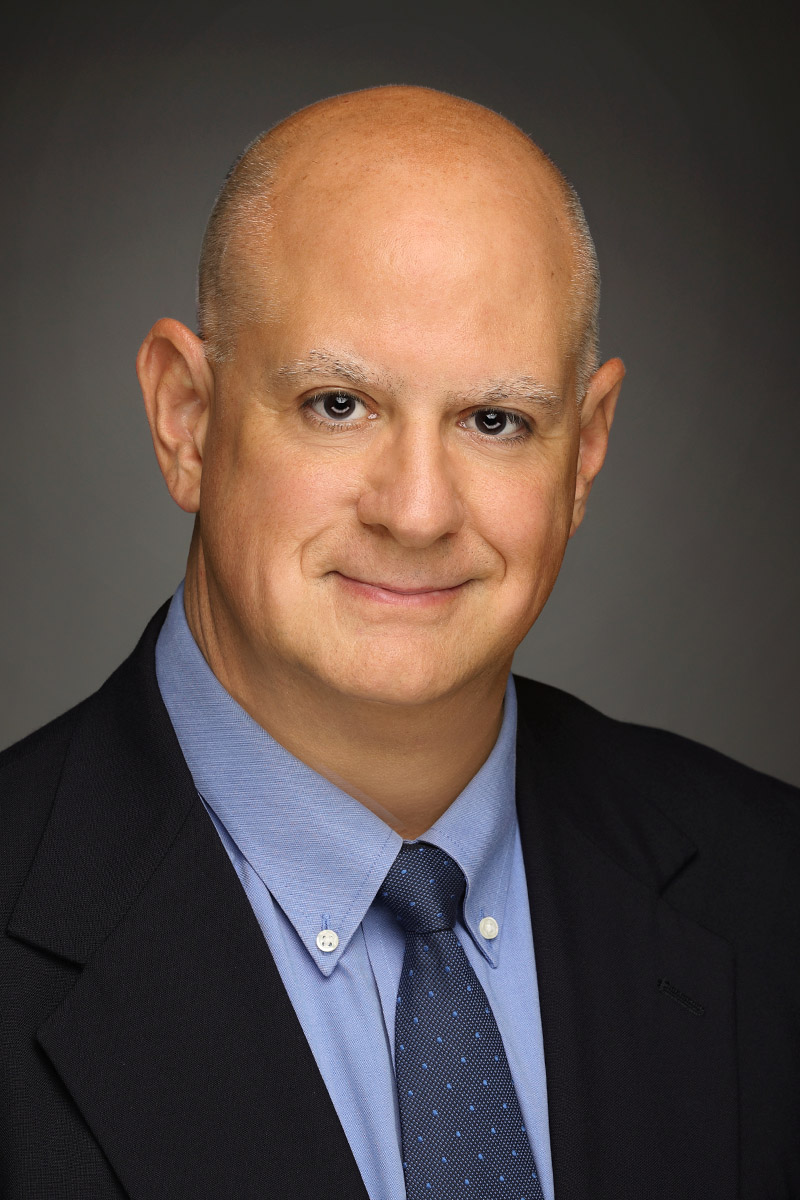A life of spirit and song: Viterbo prepares to celebrate Sister Thea Bowman
Picture: TheaGraphicQuote.jpg. Caption: One of Sr. Thea’s many inspirational quotes. Image courtesy of Communications. Original artwork by Br. Mickey McGrath, OSFS.
March 28, 2022
During the week of March 27, 2022, the entire Viterbo community come together to celebrate the life of an extraordinary African American woman. During the inaugural Sister Thea Bowman Week, campus spaces will be filled with gatherings, conversations, and songs, all to celebrate the legacy of an FSPA sister whose name might new to many in the campus community.
Anyone who has heard a recording of her singing voice, speech, or any account of her life could ascertain that Sr. Thea would make herself a stranger to no one. In every area of her life, the sister, who is now being considered for sainthood, sang and spoke a message that is just as powerful now as it was 30, 40, and 50 years ago. Her importance as an African American Catholic woman pursuing a career in education and faith during the era of Jim Crow cannot be overstated. No words can convey her life’s meaning and relevance but her own.
In a clip featured in the documentary video of her life, “Thea Bowman, Living the Faith,” Sr. Thea seems to reach through time when she says, “I can be the bridge over troubled water. I can take you by the hand, and take you with me into the black community; I can walk with you into your community, and if I walk with you into your community, I don’t walk as a stranger. I walk as your sister.”
After events on and off Viterbo’s campus in the past few years, it can be said that many could use and appreciate a guiding sister. Sr. Thea also said about her work of reconciliation and bridge-building, “I don’t think it starts in church; I think it starts outside of church. I think when we love one another, when we become friends, then we can walk hand-in-hand into the house of the Lord and celebrate…”
That house, during the commemoration week, will include San Damiano Chapel, the Fine Arts Center Main Theatre, the Nursing Center, and the to-be-dedicated Sr. Thea Bowman Center. These spaces will be filled with the voices of Viterbo students, faculty, and community members alike. For just one example, in the first of the week’s two official concerts, the Viterbo University Concert Choir will be sharing some of the music brought to the United States by Sr. Thea’s people: traditional spirituals set by Michael Tipett and Moses Hogan.
Sr. Thea said about the black community around her, “My people have been a loving people, and I’m proud of that. We’ve been a people of song and story; we’ve survived oppression, and we’re still trying to survive and still trying to keep on keeping on. I like being black; I have friends who are white and brown and yellow and red—all the colors in between—and I love my friends. I love to be with them; I love to share with them. But I like being myself, and I thank God for making me my black self.”
The radiance of her “black self” shone in her unique approach to oration, which often included just as many sung words as spoken ones. Viterbo’s music groups, and the wider community with them, can only hope to move people as Sr. Thea did with her music, one example coming from a 1989 speech to the U.S. Conference of Catholic Bishops. Beginning with a stirring “Motherless Child,” she eventually brought a room of cautious religious leaders and educators to their feet to join hands and sing, “We Shall Overcome.”
It is the goal of Viterbo’s performing arts community and those who knew Sr. Thea in life to fill these spaces with songs and demonstrations worthy of her—to build bridges and walk together. One can only hope that these efforts are as eternal as Sr. Thea’s spirit.


